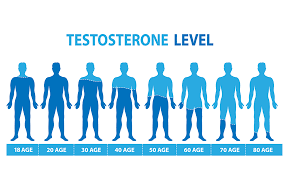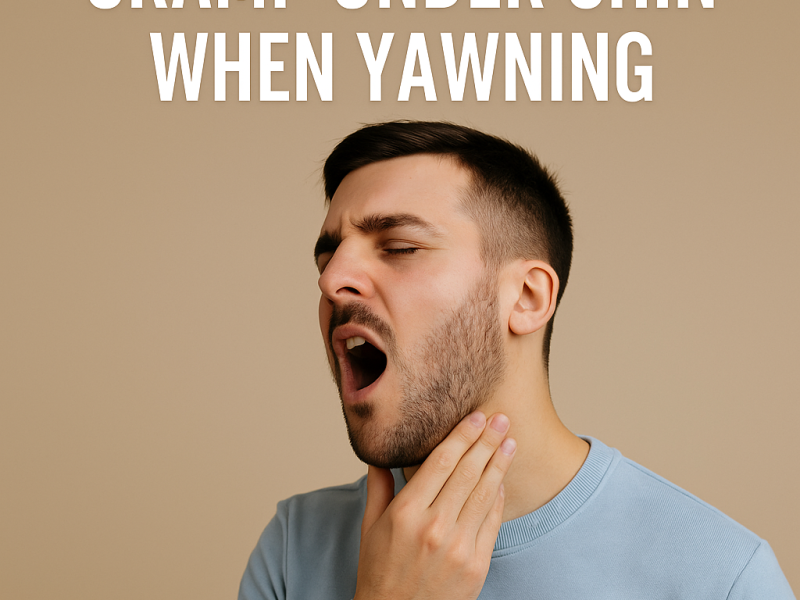Hey there, friend! Have you ever wondered about the role of the testosterone hormone in men’s health? Testosterone is an essential player in our bodies, but as we age, its levels can change. Let’s dive deeper into the bits of this fascinating topic and explore how testosterone and aging are connected and what it means for our health. Buckle up, and let’s get started!
If you are really eager to learn more about the testosterone hormone and how it affects various aspects of your life – from physical strength to mental well-being – then you’re in the right place. In this article, we’ll discuss everything from the essential functions of testosterone to the impact of age-related hormone changes on your health. By understanding these factors, you can take charge of your well-being and make informed decisions about your lifestyle and healthcare. So, stay tuned and relax as we delve into the world of the testosterone hormone and uncover its secrets!
The Testosterone Hormone: Functions and Regulation
Before we dive into the nitty-gritty, let’s take a moment to understand what the testosterone hormone functions include. Testosterone is commonly known as the primary male sex hormone responsible for various functions, such as:
Roles of the testosterone hormone in the body
Here are the primary functions of the testosterone hormone in the human body:
- Developing and maintaining male reproductive tissues
Testosterone is essential for the growth and development of male reproductive tissues, including the testes and prostate. It also plays an indispensable role in maintaining the health and proper functioning of these organs throughout a man’s life. In the context of growth hormone vs. testosterone, it’s important to note that testosterone is responsible for stimulating sperm production, which ensures men can produce sufficient sperm to maintain fertility. For example, testosterone stimulates sperm production, ensuring that men can produce enough sperm to maintain fertility.
- Promoting secondary sexual characteristics
Testosterone is responsible for the development of secondary sexual characteristics that distinguish males from females. These changes usually begin during puberty and include:
- Facial and body hair growth:
Testosterone stimulates hair follicles, leading to the growth of facial hair, like a beard or mustache, and body hair, like the ones on your chest, arms, and legs.
- Voice deepening:
The hormone helps enlarge the larynx (voice box) and lengthen the vocal cords, resulting in a deeper, more resonant voice.
- Increased muscle mass:
Testosterone promotes muscle growth and development, giving men a more muscular physique compared to women.
- Broader shoulders and a narrower waist:
Testosterone influences the distribution of muscle and fat in the body, contributing to a more masculine body shape.
- Supporting muscle and bone mass
Testosterone has an essential role in maintaining both muscle and bone mass. It stimulates protein synthesis in muscles, which helps to build and maintain muscle strength and size. Additionally, testosterone helps to maintain bone density by promoting bone formation and reducing bone resorption (the process of breaking down bone tissue). This is particularly important as men age since bone density tends to decrease over time, increasing the risk of fractures and osteoporosis.
- Regulating fat distribution and red blood cell production
Testosterone has a significant impact on fat distribution in the body. It helps maintain a healthy balance between fat and muscle mass, preventing excessive fat accumulation, especially around the waist (where it’s associated with increased health risks). Furthermore, testosterone stimulates the production of red blood cells in the bone marrow. Red blood cells are the ones responsible for transporting oxygen throughout the body, ensuring that all our tissues receive the oxygen they need to function properly.
Production of testosterone in the body
Our bodies are quite smart when it comes to producing and regulating testosterone. It’s primarily produced in the testicles, with a little help from the adrenal glands. Your hypothalamus and pituitary gland in the brain help control the production.
Expected Testosterone Levels
Testosterone hormone levels can vary depending on age but don’t worry, and we’ve got you covered. Here’s a quick guide to normal levels at different ages:
- Teen years: 300-1,200 ng/d
During puberty, testosterone levels increase rapidly, peaking in the late teens. Normal testosterone levels during this period typically range from 300-1,200 ng/dL but can vary depending on factors such as genetics and lifestyle.
- Adulthood (up to 30): 270-1,070 ng/dL
After puberty, testosterone levels tend to stabilize, with normal levels ranging from 270-1,070 ng/dL. However, you have to note that testosterone levels can still fluctuate during this period based on factors such as stress and diet.
- Over 30: Slight decline every year
As men age, it is very common to experience a gradual decline in testosterone levels, with levels decreasing by about 1-2% per year after the age of 30. While this decline is a natural part of aging, it can have significant impacts on a person’s health if levels fall too low.
The Symptoms of Aging on Testosterone Levels
As the years go by, it’s normal for testosterone levels to decline gradually. In fact, after age 30, they tend to drop about 1% per year. Time sure does fly, huh?
Several factors can contribute to low testosterone levels in older men, such as obesity, chronic medical conditions, or even certain medications. Keep an eye on these potential triggers!
Wondering if your testosterone levels might be low? Watch out for these telltale signs and symptoms:
- Decreased libido
A lower sex drive can be an indicator of declining testosterone levels. If you find that your interest in sexual activity has waned, it might be due to a drop in testosterone.
- Erectile dysfunction
Testosterone plays a role in achieving and maintaining erections. Low levels of this hormone can lead to difficulty in getting or sustaining an erection, which can affect your sexual health and relationships.
- Fatigue
Feeling constantly tired or lacking the energy you once had? Low testosterone levels can contribute to a persistent sense of fatigue, even after a good night’s sleep.
- Loss of muscle mass
As testosterone plays a key role in muscle growth and maintenance, reduced levels can lead to decreased muscle mass and strength. You might find it harder to build or maintain muscle as you once did.
- Mood changes
Low testosterone levels can impact your emotional well-being, leading to mood swings, irritability, or even depression. If you notice a change in your mood or mental state, it could be related to a drop in testosterone.
- Trouble concentrating
Testosterone plays a role in cognitive function, and decreased levels may affect your ability to focus or remember things. If you happen to find yourself struggling with paying attention through time, concentration, or memory, it might be linked to your testosterone levels.
Health Consequences of Low Testosterone Hormone Levels
Navigating the effects of low testosterone can be challenging, as it impacts various aspects of your health. To give you a better understanding, let’s break down the consequences into three categories: physical health, mental health and cognitive function, and sexual health. Get ready to dive in!
Physical health consequences
When testosterone levels decline, it’s not just your energy levels or mood that may be affected; your physical health can take a hit as well. Let’s explore the three main areas impacted by low testosterone:
- Muscle mass and strength
You may notice a decline in muscle tone and find it harder to gain or maintain muscle mass.
- Bone density
Lower testosterone can lead to weaker bones and a higher risk of fractures.
- Body fat distribution
You might see an increase in body fat, especially around the waist.
Mental health and cognitive consequences
It’s not just the physical aspects of our health that can be affected by low testosterone levels. Surprisingly, our mental well-being and cognitive abilities can also take a hit. Let’s delve into the two primary ways low testosterone can impact our minds:
- Mood and depression
Low testosterone can contribute to mood swings, irritability, or even depression.
- Memory and cognitive function
Trouble concentrating or remembering things? Testosterone levels could play a role.
Sexual health consequences
The impact of low testosterone doesn’t stop at your physical and mental well-being; it also extends to your sexual health. Let’s explore the two main areas where you might experience some changes:
- Libido and erectile function
Low testosterone may lead to decreased sex drive and difficulty achieving or maintaining erections.
- Fertility
In some cases, low testosterone can impact sperm production and fertility.
Strategies for Maintaining Healthy Testosterone Hormone Levels
Don’t fret! While aging and other elements might impact your testosterone levels, there are numerous methods to maintain them, including testosterone hormone therapy. By adopting conscious lifestyle decisions and contemplating medical interventions when required, you can preserve not only healthy testosterone levels but also your overall well-being.
Lifestyle choices
Maintaining healthy testosterone levels is easier when you adopt some smart lifestyle choices. Let’s explore a few key areas you can focus on to support your hormone levels and overall well-being:
- Diet
Choose a balanced diet rich in lean proteins, healthy fats, and nutrient-dense fruits and veggies. Don’t forget those essential vitamins and minerals!
- Exercise
Regular physical activity, especially resistance training, can help maintain or even boost testosterone levels. So, hit the gym or try some bodyweight exercises at home!
- Sleep
Make sure you are giving your body 7-9 hours of quality sleep every night. A good night’s rest is crucial for overall health, including hormone regulation.
- Stress management
Find healthy and better ways to cope with stress, like sports and meditation, yoga, or deep breathing exercises. Chronic stress can negatively affect testosterone levels, so keep it in check!
Medical interventions
When lifestyle changes aren’t enough, medical interventions can offer additional support to restore your testosterone levels. Let’s take a look at some options your healthcare provider might consider:
- Testosterone replacement therapy
If your testosterone levels are significantly low, your doctor might recommend testosterone replacement therapy (TRT). But remember, it’s important to weigh the potential risks and benefits before jumping in.
- Other treatment options
Depending on the cause of your low testosterone, your healthcare provider may suggest alternative treatments like lifestyle changes, medication adjustments, or addressing underlying health issues.
Debunking Common Myths about Testosterone Hormone and Aging
As men age, it is probable for them to experience a decline in testosterone hormone levels. Unfortunately, there are many misconceptions surrounding this natural process. Let’s explore some common myths about testosterone hormone and aging:
- Testosterone hormone and aggression
Many people believe that higher testosterone levels in men lead to aggression and hostility. However, research shows that this is not the case. In fact, testosterone levels are positively associated with social behavior and low levels are associated with anxiety and depression.
- The misconception of testosterone as an exclusively male hormone
While testosterone is often associated with male physiology, it is also present in women. Women naturally produce lower levels of testosterone than men, but it is still an important hormone for maintaining bone density, muscle mass, and sex drive.
- The notion that testosterone decline is an inevitable part of aging
While it is true that testosterone levels decline as men age, this does not mean that it is an undeniable part of the aging process and is inevitable. There are many lifestyle choices and medical interventions that can help maintain healthy testosterone levels, such as exercise, diet, and testosterone replacement therapy.
- Misconceptions about testosterone replacement therapy
Testosterone replacement therapy (TRT) is a medical intervention used to treat low testosterone levels. However, there are many misconceptions about TRT, such as the belief that it increases the risk of prostate cancer. In reality, studies have found no evidence of increased cancer risk with TRT. It is important to see and consult with a healthcare provider to determine if TRT is an appropriate treatment option.
By debunking these general misconceptions about testosterone, we can better understand the relationship between this hormone and aging. It is also important to approach this topic with an open mind and seek accurate information from reliable sources.
Check Your Testosterone Levels, Now!
Understanding the relationship between the male hormone testosterone and aging is crucial to maintaining optimal health as we grow older. By staying informed and proactive, you can take control of your hormone levels and enjoy a better quality of life. So, keep an eye on those testosterone levels, make necessary lifestyle adjustments, and don’t hesitate to consult a healthcare professional if you have concerns. Here’s to staying healthy and vibrant, no matter your age!
If you’re looking for more information and guidance on how to manage your testosterone levels, the experts at the EEU Clinic are here to help. They offer a wealth of resources on their website, covering everything from conventional treatments to cutting-edge therapies for men. Check out their articles at EEU Clinic and take the first step towards a healthier, more balanced you. Remember, the EEU Clinic is committed to helping you achieve and maintain optimal hormone health, so don’t hesitate to reach out and explore what they can do for you!
Also Read: How to Increase Male Libido: Try These 7 Men’s Sexual Health Supplements


